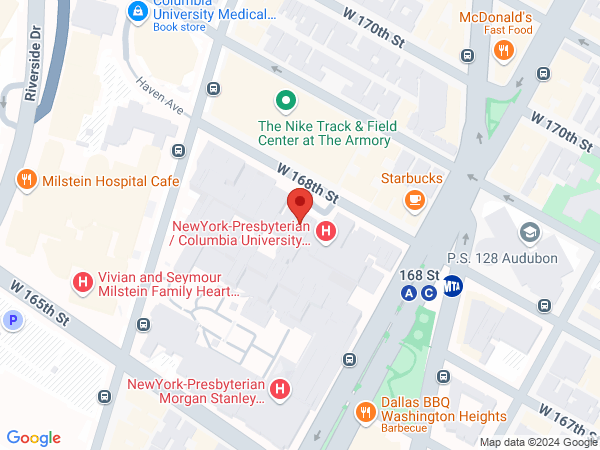Qing Wang, MD, PhD

Overview
Qing Wang, MD, PhD, is Assistant Professor of Ophthalmology and a clinician-scientist specializing in the medical and surgical management of glaucoma. Her surgical expertise includes cataract and both minimally invasive and traditional glaucoma surgeries. Her research focus is on understanding why retinal ganglion cells are lost in glaucoma and developing new treatments to protect and restore these cells.
Dr. Wang graduated from Yale University with a BS and MS in Molecular Biophysicis and Biochemistry. She subsequently came to Columbia University where she earned her MD and PhD through the Medical Scientist Training Program. Her doctoral dissertation was on the molecular programs that distinguish different subpopulations of retinal ganglion cells during development. She went on to complete her ophthalmology residency and postdoctoral research fellowship on optic nerve regeneration at the Stein Eye Institute at the University of California, Los Angeles. Before returning to Columbia, she completed a glaucoma clinical fellowship at Wilmer Eye Institute at Johns Hopkins University.
Dr. Wang is a rising star in glaucoma research and has won many awards throughout her training. Clinically, she is dedicated to addressing the needs of each individual patient to protect their vision and maximize their quality of life.
Areas of Expertise / Conditions Treated
- Cataract
- Glaucoma
- Glaucoma Laser Surgery
- Glaucoma Surgery
Academic Appointments
- Assistant Professor of Ophthalmology
Hospital Affiliations
- NewYork-Presbyterian / Columbia University Irving Medical Center
- NewYork-Presbyterian / Weill Cornell Medical Center
Languages
- Mandarin
- Spanish
Gender
- Female
Schedule an Appointment
Virtual Visits/Telehealth
Virtual Visits allow you to connect with your provider from the comfort, convenience, and safety of your own home.
Phone Appointments
Connect Patient Portal
For existing patients, login to make an appointment, view documentation or contact your care provider.
Location(s)
Insurance Accepted
Aetna
- Aetna Signature Administrators
- EPO
- HMO
- Medicare Managed Care
- NY Signature
- POS
- PPO
- Student Health
Cigna
- EPO
- Great West (National)
- HMO
- Medicare Managed Care
- POS
- PPO
Emblem/GHI
- Medicare Managed Care
- PPO
Emblem/HIP
- ConnectiCare
- EPO
- Essential Plan
- HMO
- Medicaid Managed Care
- Medicare Managed Care
- POS
- PPO
- Select Care (Exchange)
- Vytra
Empire Blue Cross/Blue Shield
- EPO
- HMO
- Medicare Managed Care
- PPO
Fidelis Care
- Essential Plan
Local 1199
- Local 1199
MagnaCare (National)
- MagnaCare
Medicare
- Railroad
- Traditional Medicare
Multiplan
- Multiplan
UnitedHealthcare
- Compass (Exchange)
- Empire Plan
- HMO
- Medicare Managed Care
- Oxford Freedom
- Oxford HMO
- Oxford Liberty
- POS
- PPO
WellCare
- Medicare Managed Care
World Trade Center Health Plan
- World Trade Center Health Plan
Credentials & Experience
Education & Training
- Columbia University College of Physician & Surgeon
- Residency: UCLA Stein Eye Institute
- Fellowship: Johns Hopkins University - Wilmer Eye Institute
Board Certifications
- Ophthalmology
Research
Qing Wang, MD, PhD, is an Assistant Professor of Ophthalmology. She is a glaucoma-trained clinician-scientist who studies retinal ganglion cell and astrocyte biology in the context of glaucoma pathogenesis, neuroprotection, and neuronal regeneration.
Dr. Wang graduated with a BS and MS in Molecular Biophysicis and Biochemistry from Yale University, where she was initiated into neuroscience research, investigating the role of cell adhesion molecules in mammalian synaptogenesis under the tutelage Dr. Thomas Biederer. She subsequently came to Columbia University, where she earned her MD and PhD through the Medical Scientist Training Program and Doctoral Program in Neurobiology and Behavior, under the mentorship of Dr. Carol Mason. Her doctoral dissertation explored the different molecular pathways that specify and guide the growth of ipsilaterally and contralaterally projecting retinal ganglion cells throughout the development of the mammalian binocular visual pathways. She uncovered not only genes that define these two cell populations but also a novel group of progenitor cells at the ciliary margin zone that give rise to ipsilateral RGCs. Following her MD/PhD training, Dr. Wang joined the EyeSTAR program at Stein Eye Institute of the University of California, Los Angeles, where she completed a combined ophthalmology residency and postdoctoral research fellowship under the mentorship of Dr. Thomas Carmichael. Her postdoctoral work focused on activity-dependent molecular mechanisms in optic nerve regeneration after injury.
At Columbia, Dr. Wang is using viral and transcriptomic approaches to understand how retinal ganglion cell and astrocyte interactions at the optic nerve head drive retinal ganglion cell loss in mouse glaucoma models. While astrocytes have been shown to play both neuroprotective and neurotoxic roles in disease, their role in the pathogenesis of glaucoma remains unclear. Her research has the potential to develop novel genetic and molecular therapies for the treatment of glaucoma. As a clinician-scientist, Dr. Wang continues to take care of glaucoma patients clinically and surgically and is also involved in ongoing clinical research studies in the glaucoma division.
